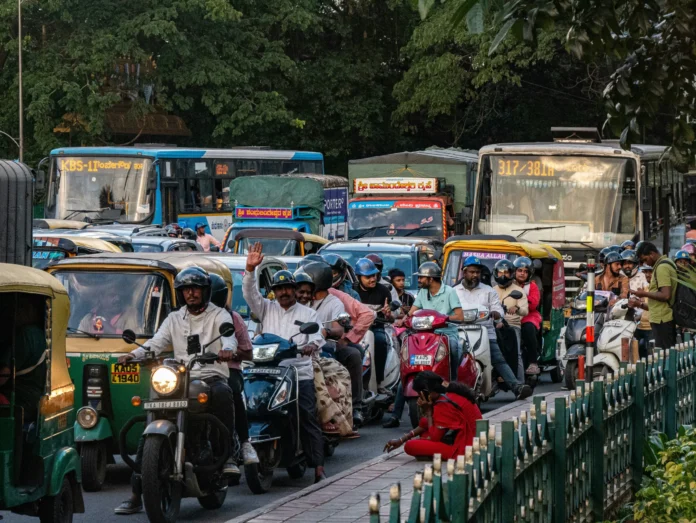Haryana’s Transport Department has rewritten its rulebook to empower the state’s tourism and transport sectors. In a progressive move, Transport Minister Anil Vij announced the extension of All India Tourist Permit (AITP) validity from 9 to 12 years for most vehicles, effective immediately. Approved by Chief Minister Nayab Singh Saini, this policy shift aims to eliminate operational bottlenecks for transporters while positioning Haryana as a hub for interstate tourism.
Breaking Down the New Policy
The revised permit system introduces a dual framework based on fuel type and geography:
1. NCR Regions (Gurugram, Faridabad, Sonipat, Jhajjar)
- Petrol/CNG Vehicles: 9 → 12 years
- Diesel Vehicles: 9 → 10 years (environmental safeguard)
2. Non-NCR Regions
- All Fuel Types: 9 → 12 years
This tiered approach acknowledges the National Capital Region’s air quality challenges while providing operational relief to transporters in other districts like Karnal and Panchkula.
5 Reasons Behind the Extension
1. Harmonizing with Neighboring States
Prior to this reform, Haryana’s 9-year permit validity created cross-border operational headaches. For instance, a Shimla-bound tourist bus registered in Haryana needed costly re-registration after 9 years, while Punjab-registered counterparts operated for 12 years. The updated rules level the playing field.
2. Economic Relief for Transporters
The Ambala Taxi Operators Union estimates transporters previously spent ₹15,000–20,000 annually per vehicle on permit renewals and documentation. With renewal frequency reduced, operators can redirect funds toward fleet upgrades or driver training.
3. Tourism Sector Revival
Post-COVID, Haryana saw a 35% drop in tourist vehicle registrations (2020–2022). The extended permits incentivize travel agencies to expand fleets, particularly for Delhi-Agra-Jaipur circuit operations.
4. Environmental Balancing Act
By capping diesel vehicle permits at 10 years in NCR, Haryana aligns with the Commission for Air Quality Management’s push to phase out older, high-emission vehicles.
5. Reducing Bureaucratic Red Tape
A single-window portal for AITP applications is under development, aiming to cut processing time from 30 days to 7 days-a move expected to boost Haryana’s Ease of Doing Business ranking.
Stakeholder Reactions
- Transport Minister Anil Vij: “This isn’t just about permits-it’s about making Haryana the preferred launchpad for India’s tourism economy.”
- Jasbir Singh, Ambala Taxi Operators Union: “We’ve fought for this since 2018. Now, our 2,000-member union can plan long-term.”
- Tourism Expert Neha Sharma: “Expect a ripple effect-hotels, guides, and local artisans will benefit from increased footfall.”
Implementation Roadmap
- Notification: The draft policy will be published for public feedback before finalization.
- IT Integration: Existing VAHAN portal modules will be updated to reflect new validity periods.
- Awareness Drives: Workshops in Gurugram, Faridabad, and Panchkula to educate operators.
Case Study: Karnal-Based Travel Agency
Green Valley Tours, operating 45 vehicles, previously replaced its entire fleet every 9 years. Under the new policy:
- Cost Savings: ₹9 lakh/year saved on permit renewals
- Asset Utilization: Vehicles can now serve premium clients requiring newer models
- Market Expansion: Plans to add 15 vehicles for religious tourism circuits
Environmental Considerations
While extending permits, Haryana has introduced checks to prevent abuse:
- Annual Fitness Certificates: Mandatory for all vehicles, regardless of permit validity
- Retrofitting Incentives: ₹50,000 subsidy for diesel vehicles upgrading to BS-VI norms
- Scrappage Policy: Older vehicles can avail tax benefits if replaced before permit expiry
Future Projections
- Tourism Growth: 8–10% annual increase in vehicle registrations expected
- Job Creation: 5,000+ new roles in transport and hospitality sectors by 2026
- Investment: Auto manufacturers may introduce Haryana-specific financing schemes
Challenges Ahead
- Enforcement: Preventing misuse of extended permits for non-tourism activities
- Infrastructure: Need for more rest stops along key routes like NH44
- Technology: Implementing real-time emission monitoring for older vehicles
Conclusion
Haryana’s permit extension is more than a policy tweak-it’s a strategic investment in sustainable mobility. By balancing economic growth with environmental responsibility, the state sets a template for others to follow. As operators begin leveraging these changes, the real winners will be India’s travelers, who’ll enjoy safer, newer, and more efficient transport options.



